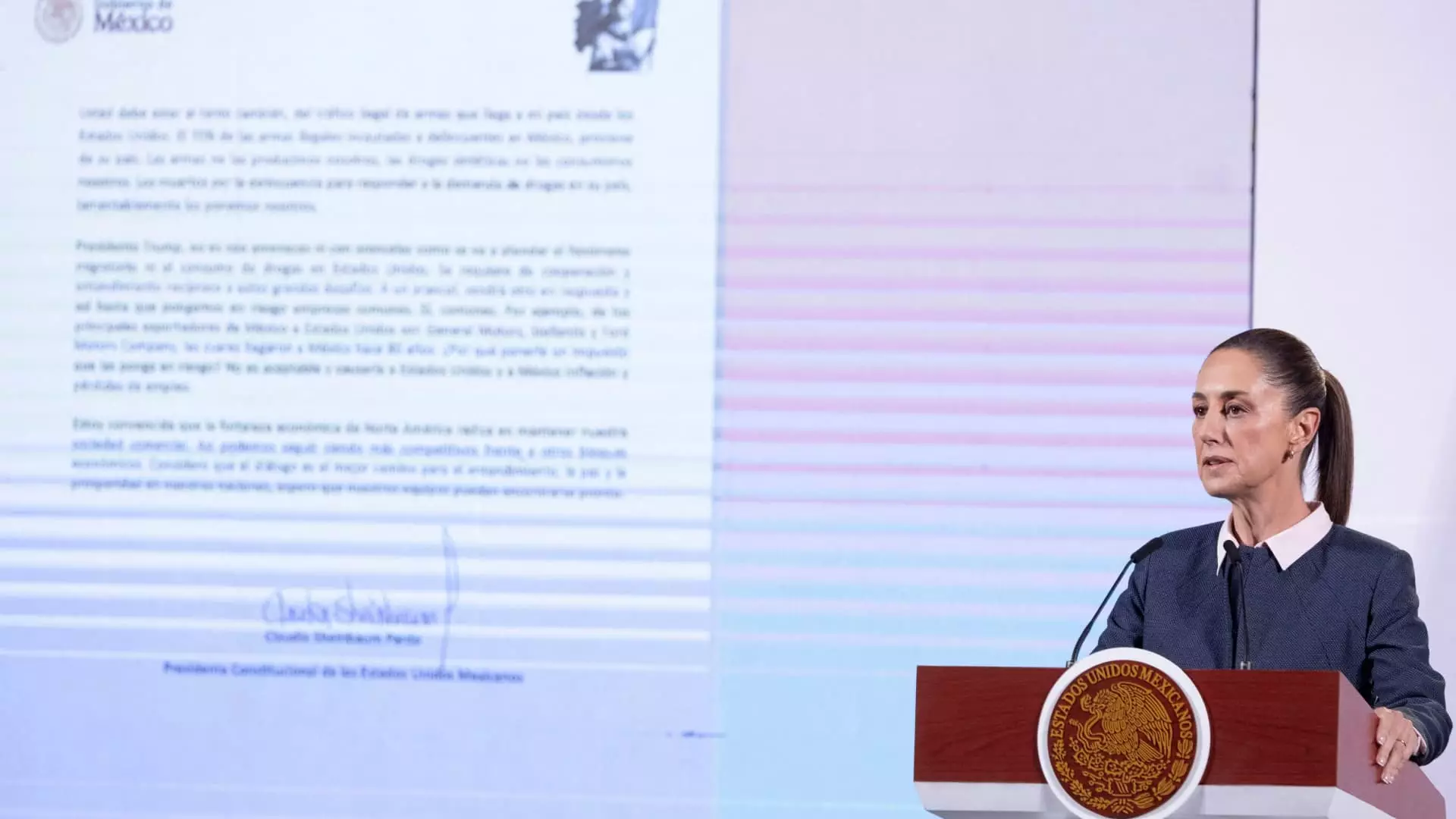The economic interdependence of the United States and Mexico has always been a pivotal aspect of North American commerce, with the potential to cultivate significant growth and mutual benefits. However, recent statements from Mexican President Claudia Sheinbaum highlight the fragility of this relationship amid discussions of high tariffs proposed by U.S. President-elect Donald Trump. This article delves into the possible repercussions of Trump’s tariff strategy, the responses from Mexican leadership, and the looming implications for bilateral trade.
Donald Trump’s intention to impose a 25% tariff across the board sends ripples through the economy, raising alarms that echo through the corridors of both U.S. and Mexican markets. President Sheinbaum’s stark warning implies that such tariffs could not only result in dire consequences for the American economy—potentially displacing around 400,000 jobs—but could also lead to retaliatory tariffs from Mexico. This reciprocal response could escalate into a detrimental trade war, thereby impacting not just economies but livelihoods on both sides of the border.
Mexican Economy Minister Marcelo Ebrard echoed these concerns, arguing that these proposed tariffs effectively undermine commitments made under the United States-Mexico-Canada Agreement (USMCA). Such an agreement was meant to bolster economic ties and foster a collaborative regional framework, and stepping away from these principles could result in an economic ‘shot in the foot’ for both countries. The automotive industry, a cornerstone of U.S.-Mexico trade, would face severe repercussions; the tariffs could hit companies like Ford and General Motors the hardest, potentially doubling the existing tax liabilities for operations within Mexico.
The automotive sector deserves particular attention due to its significance within the North American economy. Statistics reveal that a staggering 88% of pickup trucks in the U.S. are manufactured in Mexico. This statistic highlights a precarious reliance on cross-border cooperation and the impending threat posed by tariffs. Ebrard’s prediction of a $3,000 price increase on these vehicles illuminates a scenario where consumers in rural areas—traditionally supportive of Trump—could bear the brunt of these economic decisions.
Given that the automotive industry comprises approximately 25% of all vehicle production in North America, any disruption can have cascading effects. Reports from analysts project that a blanket 25% tariff could potentially obliterate profits not only for the Detroit Three automakers but also disrupt supply chains, leading to increased costs and diminishing growth prospects.
Bilateral Talks: On The Horizon
Amid fears of escalating trade tensions, the dialogue between Sheinbaum and Trump during a recent phone call suggested that both leaders are keen on maintaining lines of communication. While Trump has framed the tariffs as a maneuver to control drug trafficking and migration, Sheinbaum countered this narrative by emphasizing Mexico’s proactive approach to managing migration without closing borders. This exchange was characterized by Sheinbaum as a potential opportunity to build “bridges” rather than barriers, indicative of Mexico’s commitment to maintain a functional relationship with its northern neighbor.
Despite this optimism, the underlying tension remains palpable. Analysts categorize Trump’s tariff threats as a negotiating tactic more than a full-fledged trade policy, hinting at strategic motives behind the rhetoric. This speculation poses a paradox—while the threats might be intended to compel cooperation on broader issues, the potential economic fallout could easily derail decades of economic partnership.
The future of U.S.-Mexico relations hangs precariously on the success of diplomatic maneuvers and the potential fallout from proposed tariffs. The USMCA is scheduled for review in 2026, and if Trump’s administration opts for a punitive approach, it is likely that Mexico and its northern counterparts would seek substantial renegotiations rather than passive acceptance of unfavorable terms.
As these countries contemplate the ramifications of a possible trade war, the implications extend beyond simple economic downturns; they could usher in lengthy periods of stagnation characterized by rising unemployment and inflation. The Institute of International Finance has highlighted the potential for increased protectionism arising from such a conflict, suggesting that traders should brace for market volatility.
The complex web of trade dynamics between the United States and Mexico requires careful navigation. Leadership on both sides must consider the broader implications of their economic strategies, lest they succumb to a cycle of retaliation that could compromise the very fabric of their interconnected economies. As both nations stand at a crossroads, the repercussions of their next moves could resonate for years to come.

Leave a Reply